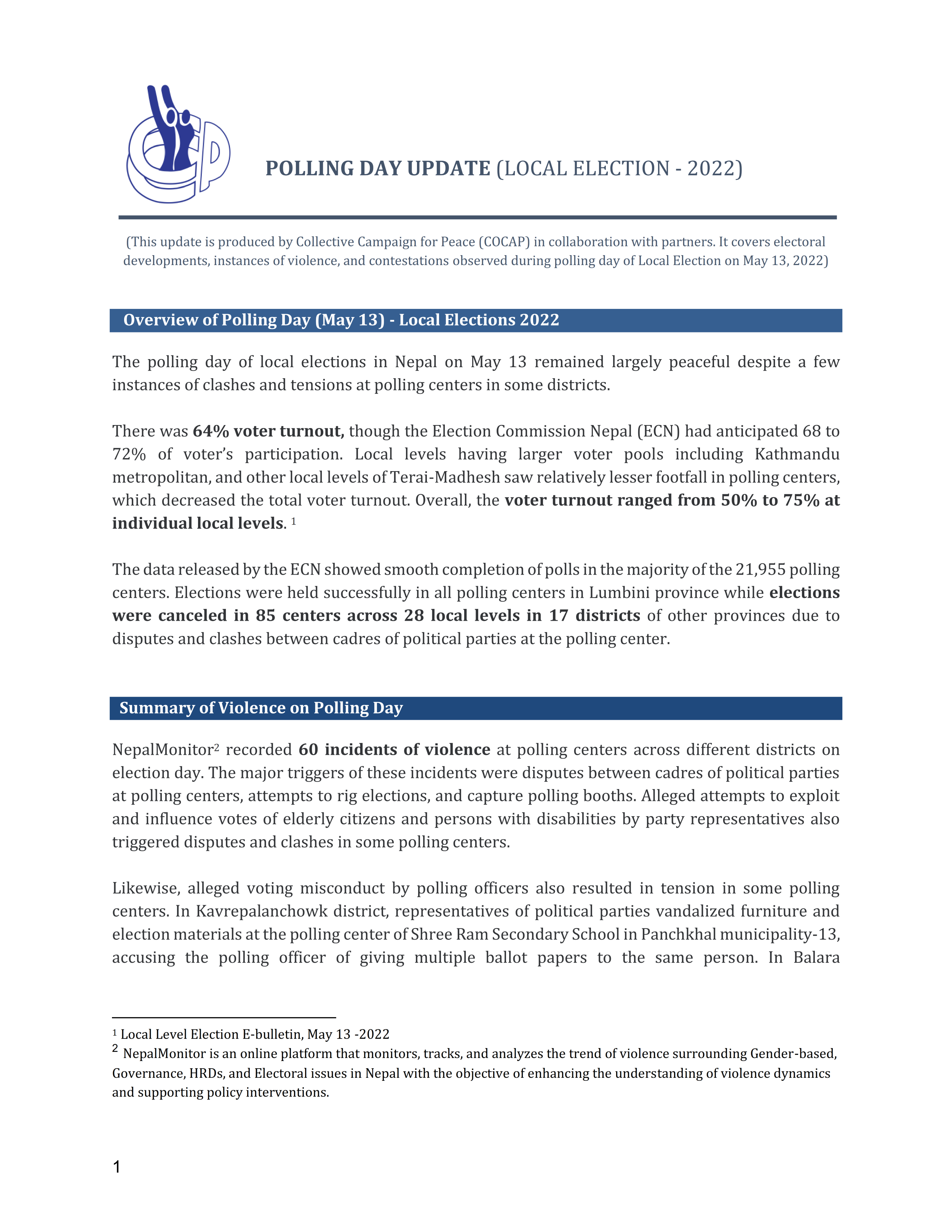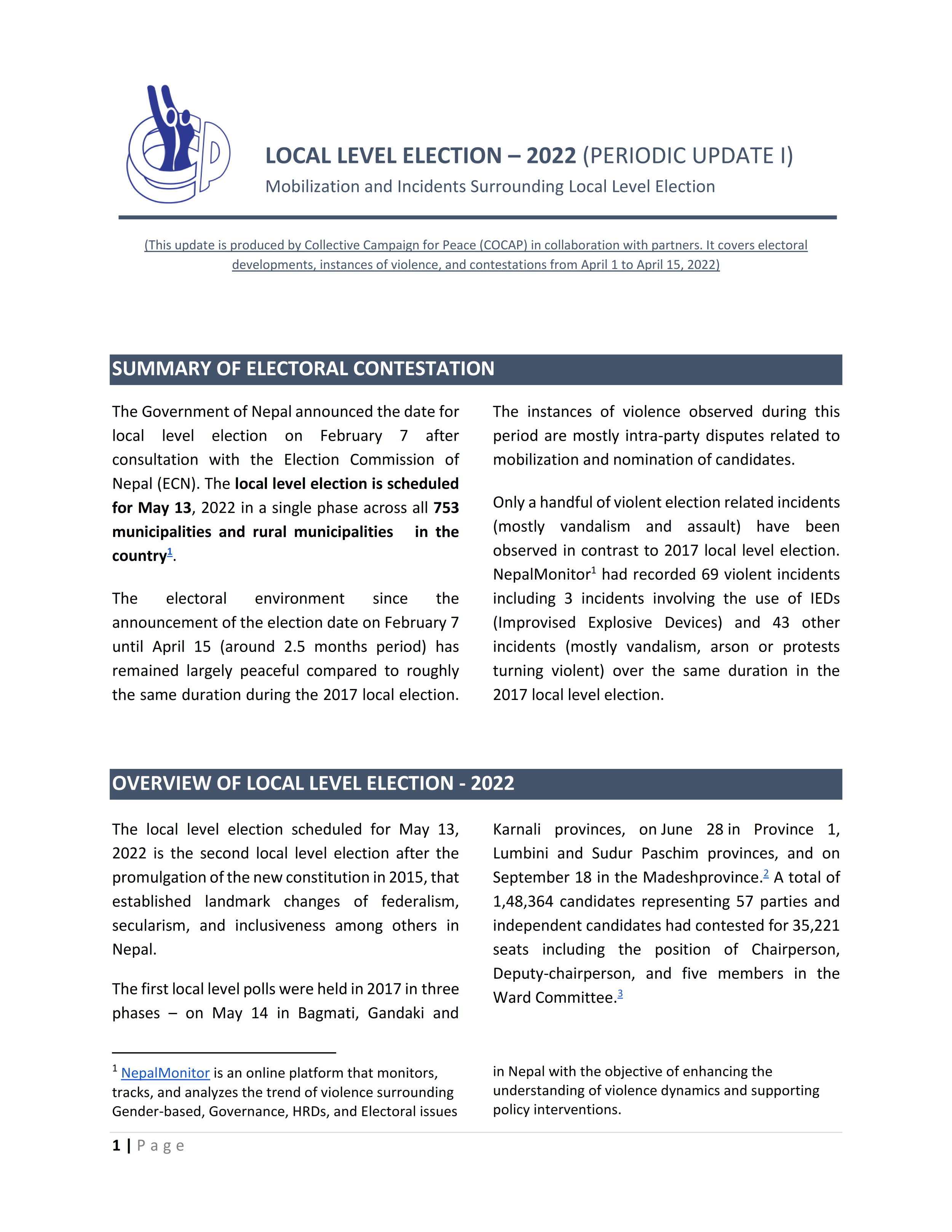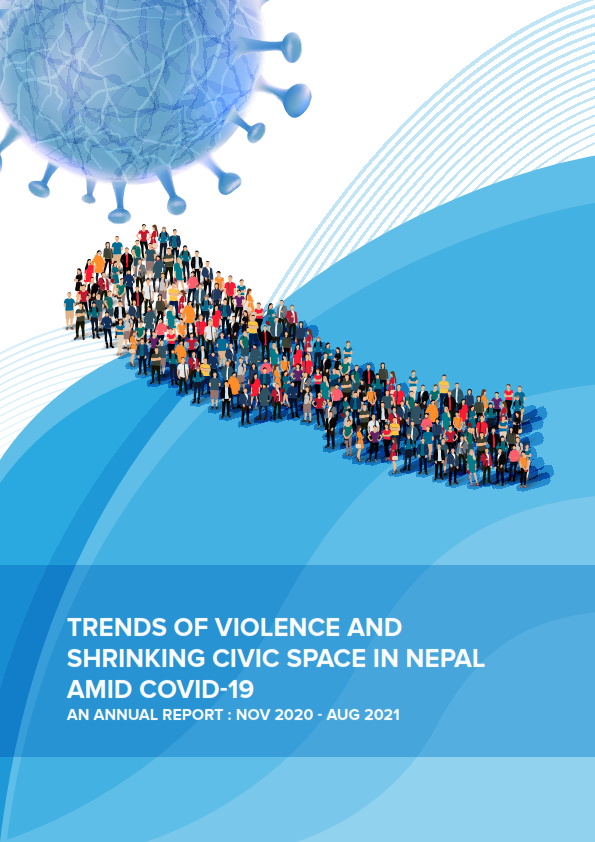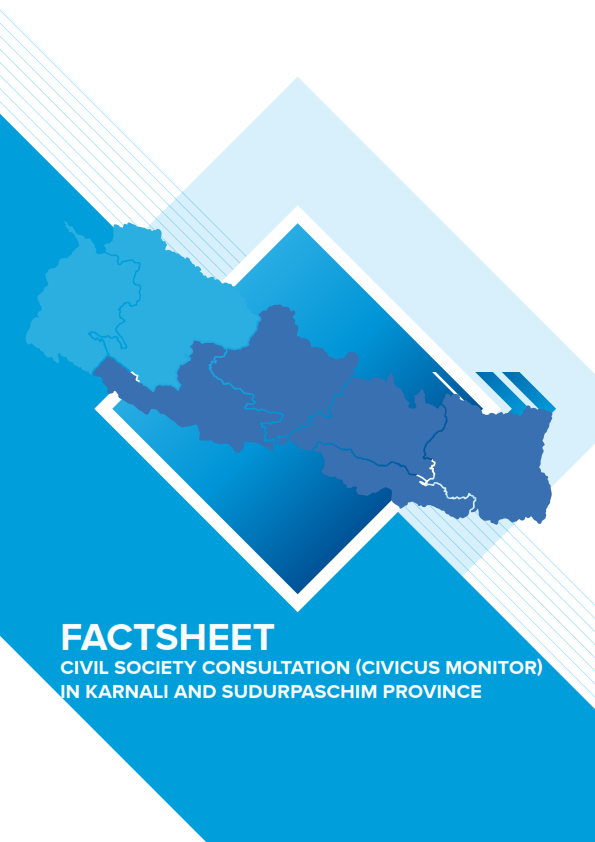Incident Reports
Bimal Pratab Shah's Op-ed on Freedom of Speech
2016-05-18
We the citizens have to make sure laws of Nepal do not end up like draconian laws of totalitarian states like North Korea and Syria.
Freedom of speech is under attack in many parts of the world, which makes me wonder, if the Constitution of Nepal (2072) protects individual right to freedom of speech.
Freedom of speech in the United States is protected by the First Amendment to the US constitution adopted in 1791. The amendment reads, "Congress shall make no law respecting an establishment of religion, or prohibiting the free exercise thereof; or abridging the freedom of speech, or of the press; or the right of the people peaceably to assemble, and to petition the Government for a redress of grievances." But, what does freedom of speech entail?
The US constitution's right to freedom of speech protects individuals (citizens and foreign nationals) from interference and constraint from the government while expressing themselves. Even offensive and controversial speech is protected from government suppression. The speech is only regulated under certain narrow and limited circumstances, because the US system is built on the idea that free and open exchange of ideas encourages understanding and truth-seeking.
The "Article 17- Right to Freedom (2)," of the Constitution of Nepal 2072 promulgated by the Constituent Assembly (CA) last year reads, "Every citizen shall have the following freedoms: (a) freedom of opinion and expression, (b) freedom to assemble peacefully and without arms, (c) freedom to form political party, (d) freedom to form unions and associations, (e) freedom to move and reside in any part of Nepal, and (f) freedom to engage in any occupation or be engaged in employment, establish and operate industry, trade and business in any part of Nepal.
Unlike the US constitution, the Nepali constitution only guarantees the right to freedom of its citizens and, unfortunately, also grants the government right to create laws that could possibly curtail freedom of speech under the circumstances mentioned in the Article 17 that reads, "Nothing in sub-clause (a) shall be deemed to prevent the making of an Act to impose reasonable restrictions on any act which may undermine the nationality, sovereignty, independence and indivisibility of Nepal, or federal units, or jeopardizes the harmonious relations subsisting among the people of various caste, ethnicity, religion, or communities, or incites racial discrimination, or untouchability, or disrespects labour, or any act of defamation, or contempt of court, or an incitement of offence, or is contrary to decent public behavior or morality."
Robert Penner, a Canadian citizen, was recently ordered to leave Nepal on the ground that he had posted messages on Twitter that supposedly threatened national unity. Furthermore, the Department of Immigration stated that Penner had violated his visa terms that states that he could be expelled from the country if he became involved in any activities against Nepal or its government. I think he just tweeted on issues that he thought did not align with the universally accepted principles of democracy. What is even more worrisome is the fact that he was a Silicon Valley-type working as a technical architect in Nepal. I wonder what Silicon Valley thinks of this regressive move on Nepal government's part.
On the other hand, the Article 103 of the Nepalese Constitution 2072, guarantees freedom of speech for the members of the parliament. The Article-103 (1) under "Privileges" states that, "Subject to the provisions of this Constitution, there shall be full freedom of speech in both Houses of Parliament and no member shall be arrested, detained or prosecuted in any court for anything said or any vote cast in the House." Likewise, the Article-187 guarantees similar privileges for the "Provincial Assembly."
It seems the right to freedom of speech protected by the US constitution is guaranteed only for the members of parliament in Nepal. On the other hand, the freedom granted to Nepali citizens is similar to the right to freedom of expression recognized as a human right under the Article 19 of the Universal Declaration of the Human Rights in the International Covenant on Civil and Political Rights (ICCPR).
The Article 19 of the ICCPR states that "everyone shall have the right to hold opinions without interference" and "everyone shall have the right to freedom of expression; this right shall include freedom to seek, receive and impart information and ideas of all kinds, regardless of frontiers, either orally, in writing or in print, in the form of art, or through any other media of his choice."
Is there a difference between freedom of speech and freedom of expression? I believe there is. Freedom of speech is a statement or idea that is well supported by logic and rational thinking. Freedom of expression, on the other hand, may just be an expression of emotions which may not be supported by logic and rational thinking. In short, while the latter can be curtailed, the former cannot be curtailed, at least according to the Constitution of Nepal-2072.
Penner's case is the first case of arbitrary detention and deportation of a foreign national for engaging in a conversation about Nepal's politics. However, using Clause 47 of the Electronic Transaction Act-2008, the government has been curtailing the freedom of speech for quite some time. Many have been arrested for criticizing the government on social media. In case you are curious, the sub-section (1) of the Clause 47 of the Act reads, "any person involved in disturbing social harmony through hate speeches... is liable to the punishment with the fine not exceeding One Hundred Thousand Rupees or with the imprisonment not exceeding five years or with both."
Until 2015, the Government of India, using the Section 66A (inserted in 2009) of the Information Technology Act, 2000, also used to arrest people for posting "offensive content" on social media. However, in 2015, the Supreme Court quashed Section 66A of the Act. As a result, no one can be arrested in India for a Facebook post, tweets, or cartoons. The Indian Supreme Court felt that the Section 66A went against the fundamental right of free speech and expression guaranteed by Article 19 (1)(a) of the Constitution of India.
Every country is entitled to a constitution tailored to its need. However, I firmly believe that every constitution should guarantee the citizens right to freedom of speech. Therefore, we the citizens have to make sure that the laws of Nepal do not end up like draconian laws developed by totalitarian states like North Korea and Syria, but like the ones from democratic powerhouses like the US and India. It's important that the Article 17 of the Constitution of Nepal-2072, and more importantly the Clause 47 of the Electronic Transaction Act 2008 are amended as soon as possible. Furthermore, we the citizens have to make sure the amendment ensures that laws that can possibly curtain freedom of speech cannot be formulated in the future.
The good thing about the constitution is that it is a fluid document that can be amended as per the needs of the populace. I hope we get our first amendment soon, because there is no alternative to democracy.
The writer was a fellow at the Center for Electronic Governance, United Nations University— International Institute for Software Technology
National/Online Media
Related Reports
Governance / Kathmandu
Medical education concern committee protest by banging plates and whistling
September 08, 2023
Governance / Darchula
Workers padlock school citing non-receipt of wages for more than a year
Sudurpashchim, Darchula, Naugad
August 29, 2023
Governance / Sunsari
Prohibitory order issued in Dharan, tightening at entry points
Province 1, Sunsari, Dharan
August 25, 2023
Governance / Morang
Students of Eastern College in Biratnagar on protest
Province 1, Morang, Biratnagar
August 23, 2023
Related Trend Analysis
Analysis

THE NEPAL PEACE MONITOR ANNUAL REVIEW: 2020
October 25, 2021
Human Trafficking / LGBT+ Rights / GBV / Political / Children’s Rights / Senior Citizens’ Rights / HRD Issues / Human Rights / Interpersonal Violence / Governance / Covid-19 / Civic-Space / PwD

_001.png)




